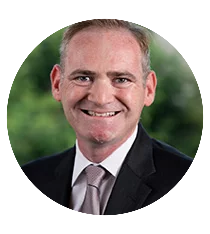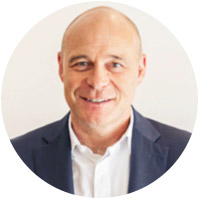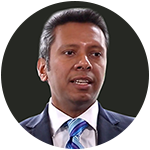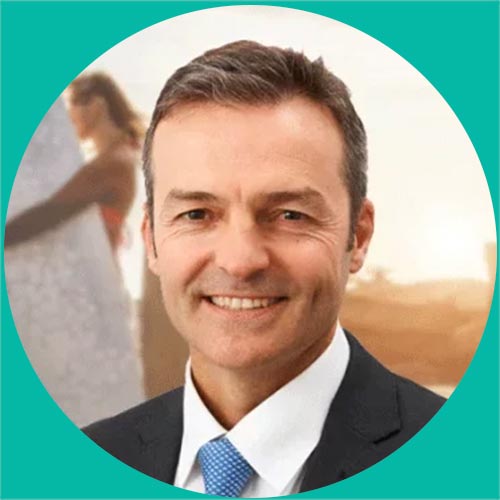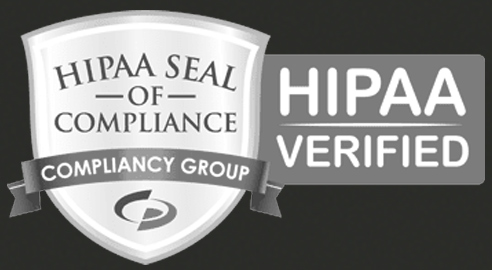
How eye surgery marketers should name cataract surgery options
Eye surgery marketers use many adjectives to describe different eye treatment options available to patients.
For cataract surgery, technological advances in intraocular lens technology (monofocal, multifocal, accommodative, and toric IOLs) have prompted eye surgery marketers to differentiate surgical options into product packages.
That is a good idea because attempting to communicate the nuances between lens choices to patients who aren’t okay with medical terminology tends to be a losing proposition.
In this post, I will review the adjectives eye surgery marketers use to “productise” the two main options and share a set of pros and cons for each. My aim with this post is not to convince you to use one adjective over another. Instead, I aim to give you a sense of the strengths and weaknesses of each adjective so that you can decide what best fits your market conditions.
If you want to just take my word for it, I recommend surgeons use the terms Traditional cataract surgery and Lifestyle cataract surgery. However, if you’d like to read more about why I suggest these terms over others, then you’ll find that reasoning in this post.
First, eye surgery marketers use these adjectives to describe cataract surgery with monofocal IOLs:
- Basic cataract surgery
- Monofocal cataract surgery
- Standard cataract surgery
- Traditional cataract surgery
Second, eye surgery marketers use these adjectives to describe cataract surgery with multifocal, accommodative, and toric IOLs:
- Complex cataract surgery
- Custom or Customised cataract surgery
- Laser cataract surgery
- Lifestyle cataract surgery
- Multifocal cataract surgery (and other terms using invoking lens types)
- Premium cataract surgery
- Private cataract surgery
- Refractive cataract surgery
Most eye surgery marketers have used descriptive adjectives to differentiate between cataract surgery types

The figure above is Nick Kolenda’s Product Name Matrix1https://www.nickkolenda.com/brand-names/#naming-introduction. To date, most eye surgery marketers have used descriptive product names to differentiate between the different types of surgery. Descriptive names contain words that are used in everyday language and are highly relevant to the product features.

Unfortunately, descriptive names only have one thing going for them – they are relevant to what you describe. They fall short on persuasiveness, memorability, distinctiveness, emotionality, scalability, and protectability. They’re also not very good for SEO.
To add insult to injury, the chosen words to date are generally
- too long,
- too complex,
- not very enticing to say,
- don’t lend themselves to handy abbreviations,
- They are so generic that they exist in many other places, making owning their domains or social properties next to impossible.
Descriptive names have only one benefit. They are relevant, and relevance can be helpful for informational purposes. The drawback is that product names are more persuasive when they require the prospect to infer or interpret. Unfortunately, product names don’t need to be relevant, but they must be meaningful.
Ultimately, good marketing advice is to avoid descriptive names. Why?
“…in their simplicity, [descriptive names] pave the way to daunting brand challenges: competitor encroachment, loss of trademark, lack of distinguishing identity, and the hidden killer, consumer apathy. A name that does not challenge us, does not excite us or tell us something new is a name that’s far more likely to blend. And blending is the antithesis of branding. (The Naming Group, 2016)
One brand I know chose to go with a non-word for their brand of lens replacement. In the UK, while most eye surgeons were using the jargon “refractive lens exchange” or the three-letter acronym “RLE”, Optegra chose to call it “Clarivu”. Clarivu is in the associative category of names. It’s a non-word, yet expresses the product’s benefits; that is, a “clear view”. Clarivu, is short and easy to remember. Clarivu is an excellent example of onomatopoeia – a word that phonetically imitates, resembles, or suggests the sound that it describes.
The advantages of words like these are that they are more persuasive, memorable, distinctive, legally protectable, and have better SEO. They grab our attention because they’re an easy little puzzle to figure out. They have all of these advantages while maintaining relevance to the features or benefits of the product. The drawbacks are that they might require a bigger budget to penetrate market awareness with a non-word.
…for a given promotional budget, it would be easier to attain a desired image by building upon the base of existing, meaningful perceptions rather than starting with no such perceptual base. (Robertson, 1989, p. 66)2Robertson, K. (1989). Strategically desirable brand name characteristics. Journal of Consumer Marketing.
Unfortunately, Optegra chose to diversify and expand its service portfolio to include laser vision correction and general ophthalmology. Thus, they dropped the Clarivu name and put their considerable advertising budget into marketing the Optegra brand name.
It’s unlikely that I’ll be able to convince many surgeons with relatively smaller marketing budgets to call their different cataract surgery options by any other names than descriptive names any time soon. So, until that day comes, let’s discuss what most cataract surgeons call their product options.
Here are some questions to ask when evaluating descriptive product names:
- Can it act as a synonym for the primary benefit?
- Do they contain alliteration? (i.e. do they repeat beginning phonemes)
- Do they rhyme? (i.e. do they repeat ending phonemes)
- Is it short?
- Is it easy to understand and pronounce by the layperson?
- Can you abbreviate it? (e.g. LASIK, SMILE)
- Are there potentially unfavourable translations?
(NOTE: Want to see how your practice marketing measures up against the best in class? Take this 5-minute quiz to see how you stack up in the 9 areas of practice marketing and get specific tips and advice on how you can improve your weak points and better leverage your strengths).
How prevalent are these words surgeons use to differentiate cataract surgery?
While everyone has an opinion, I seek evidence to inform my recommendations. For this purpose, you can use the Google Ngram Viewer.
The Google Ngram Viewer displays user-selected words or phrases (ngrams) in a graph that shows how those phrases have occurred in a corpus. For example, scanned books available in Google Books makes up Google Ngram Viewer’s corpus. While not perfect, the ngram approach does suggest words that people use and with which they might be more familiar.

In American English, “standard”, “traditional”, and “basic” have similar common usage. Notably, the word “monofocal” is rarely used – and therefore highly unfamiliar.

In British English, the picture tells a similar story to the American chart.

There is more variety of usage when describing the multifocal/toric type of cataract surgery, with the term “complex” leading the way.

Again, we can see a similar chart when we look at British usage. So, it’s safe to say that the word “Complex” is the most common in both American and British English usage.
What about search interest? Google Trends measure the amount of search interest for any term used worldwide in the Google Search Engine. Here are the results for the monofocal set of descriptive words.

Note how when it comes to search interest, the word “standard” has the most search interest when compared to “basic”, “traditional”, and “monofocal”. There are no significant differences in relative search interest across the Anglosphere.

When it comes to the words used to describe the multifocal/toric type of cataract surgery, the word “premium” edges “custom” only slightly, followed by “complex” and “lifestyle”. The word “refractive” has a similar search volume, relatively, to the word “multifocal”. Note, searchers in the Americas, and Oceania show more interest in the word “custom” than searchers in the “UK”, who appear to have a greater interest in the word “premium”.
Take all of this “objective” data with a grain of salt. Global or country-wide word usage and search interest can only measure the most frequently used word usage and searches. They don’t go deep enough to accurately measure compound phrases like “complex cataract surgery” versus “premium cataract surgery”. For that level of specificity by market, you’ll need to use tools like Semrush or Google Adwords.
The pros and cons of adjectives surgeons use to describe cataract surgery
Basic cataract surgery
According to Oxford Languages, the word basic means
“forming an essential foundation or starting point; fundamental.”
Synonyms for the adjective include fundamental, rudimentary, primary, and principal. When used as a noun: fundamental, essentials, rudiments, and principles.
One advantage of the word basic is that it is “common to or required by everyone” as a basic human right.
Basic also carries a derogatory meaning, as in “having tastes, interests, or attitudes regarded as mainstream or conventional.
If you’re attempting to draw a significant contrast between the monofocal and multifocal/toric of cataract surgery, then using the word “basic”, especially when you position it against “premium”, will help.
With that said, the word “basic” might imply a surgical procedure that is “easy to do” or “cheap”. That may be what you want to say if you’re actively dissuading prospective patients from electing the monofocal type. Alternatively, you may be casting a negative light on the primary option.
A few eye surgery marketers use the word basic to describe single-focus IOL implantation, including:
- Empire Eye and Laser, based in California
- Eye Site Sacramento, also based in California
- Airala Laser and Cataract Institute, based in Florida
Notably, many of these sites seem to need a refresh, so they might also be out of date with some of the more advanced methods of marketing communications as well.
Monofocal (or single-focus) cataract surgery
The unfamiliar medical nature of this phrase disqualifies it from use. Most patients will not understand the eye’s basic anatomy, let alone how monofocal or multifocal lens implants might affect their vision. Therefore, monofocal is not a term I’d recommend using with laypeople.
Very few providers still use monofocal to describe this option. Most instead just use the term “‘cataract surgery” without a modifier or adjective. However, you will sometimes see the word used in page content or as titles for blog posts – usually with SEO intent.
Standard cataract surgery
As a noun, standard means “a level of quality or attainment”, as in “their restaurant offers a high standard of service”. However, when used as an adjective, the word standard means “used or accepted as normal or average”. So, for example, “all of these doors come in a range of standard sizes.”
When used as an adjective, synonyms include “normal, usual, typical, stock, common, and ordinary”.
In this light, standard may be a useful word to use as an adjective if you aim to draw a contrast between the two options without necessarily denigrating the
monofocal option.
Surgeons and marketers that use standard cataract surgery include:
- Rockhill Eye Center, based in South Carolina
- Memorial Eye Center, based in Pennsylvania
- Vision First Eye Center, based in Alabama
Traditional cataract surgery
The word traditional means “existing in or as part of a tradition; long-established”, as in the “traditional festivities of the Church year”. Similar terms include conventional, customary, established, long-established, and accepted.”
Traditional is an adjective people use to “describe something that is habitually produced or done in accordance with tradition”.
While young people may see traditional approaches as derogatory, older people (i.e. the cataract surgery market) tends to value tradition over a novel and unconventional method because they seem riskier in contrast.
While the word traditional is not as commonly searched on Google as other adjectives, most of the market seeking monofocal cataract surgery doesn’t begin their search for information on the internet. They do, however, likely continue their search using tools like Google once they know what words to search.
While I said that I’d refrain from recommending an option in this post, I am more than likely to advise my clients to opt for the adjective traditional in most cases.
Eye surgeons who use the word traditional include:
- Piedmont Eye Center, based in Virginia
- Vance Thompson Vision, based in the Midwest US
- NVISION, based in multiple locations in the US
The pros and cons of adjectives surgeons use to describe modern cataract surgery
Complex cataract surgery
A few surgeons and marketers have chosen to use the word complex. First, as an adjective, complex means consisting of many different and connected parts. For example, “a complex network of water channels”. Secondly, complex may mean “not easy to analyse or understand; complicated or intricate. For example, “a complex personality”.
Similar words include: complicated, involved, intricate, convoluted, tangled, and elaborate.
The antonyms of complex include: obvious, plain, simple, direct, inobscure, superficial, vague, loose, and unravelled.
If you read the definitions, the disadvantages of this adjective are apparent. The worst aspect of the word complex is that it’s provider-centred instead of customer-centred. What you’re saying when you say surgery is complex is that it’s hard to perform and possibly hard on the patient to undergo. One might easily associate another negative word that starts with a C – complication.
Apart from using it to justify a higher price, I can’t think of many advantages associated with this term. Eye surgeons using this term include:
- Alex Shortt, based in London
- Niall Patton, based in the UK, uses the phrase “complicated cataract surgery”
- Alabama Cataract Center, based in Alabama
Custom (or customised) cataract surgery
In North America, the adjectives custom and customised mean “made or done to order; custom-made.” Weuse the word bespoke in the UK, as in “‘the bespoke tailors of Saville Row”.
Interestingly, the word custom is also a noun that means “a traditional and widely accepted way of behaving or doing something specific to a particular society, place, or time”. For example, “the old English custom of dancing around the maypole”.
Thus, this word is synonymous with traditional, which has the disadvantage of sending a mixed message when contrasted with traditional cataract surgery.
Unsurprisingly, synonyms of custom include tradition, practice, usage, habit, and routine.
There is a third meaning of the word custom that means “regular dealings with a shop or business by customers. The word custom is a root for the word customer. While most people don’t use the word that way, you should be aware of it.
While I like the idea of choosing something that was prepared just for me as opposed to “off the rack”, I’m doubtful that this word sufficiently communicates the benefits of multifocal cataract surgery. Customisation refers mainly to the preparation and delivery of the service. It focuses more on features than benefits.
- Cleveland Eye Clinic, based in Ohio
- Mosaddegh Eye Institute, based in California
- New England Vision, based in New England and Vermont
Laser cataract surgery
Another term that focuses on the service’s features as opposed to its benefits is the term laser. In the context of cataract surgery, the definition of the word laser is irrelevant. More important is the association with modernity and high technology.
Furthermore, many patients may associate a laser as more precise than a fallible human surgeon wielding a scalpel.
The advantage of using this modifier is that it opens up a perceived superior option to monofocal and multifocal IOLs alone. Prospects perceive it as a “cut above” than the rest. Another advantage is that you can introduce the concept of fine-tuning successful cataract procedures with a laser enhancement.
One drawback about technology-based product names is that technology has a habit of never standing still. Soon, you’ll be hearing all about robotic cataract surgery and AI-assisted cataract surgery and how that’s now the latest and greatest in modern cataract surgery.
Disadvantages arise when surgeons further complicate their descriptions with terms like FLACS, femtosecond or laser-assisted, laser-guided cataract surgery. Even worse, when comparing the options, many surgeons use anxiety-producing words like phacoemulsification, capsulorhexis, or even manual cataract surgery. Surgeons should also minimise discussions around lenses unless they’re present to clarify further and answer questions about modern lens technology.
The rule of thumb is – the more you tend to describe what you do instead of how it transforms your patient’s life, the more you’ll confuse them.
When you confuse them, you lose them.
Surgeons who use this technique include:
- Moorfields Private, based in the UK
- Progressive Ophthalmology, based in New York
- Jenkins Eye Care, based in Hawaii
- OKKO, based in Brisbane
Lifestyle cataract surgery
Lifestyle is a noun that means how a person lives, as in “the benefits of a healthy lifestyle”. Similar words and phrases include way of life, way of living, life situation, position, state, and station.
As a modifier noun, lifestyle denotes advertising or products designed to appeal to consumers by association with a desirable lifestyle. For example, “the latest lifestyle trends in the retail industries”.
In this respect, when we use lifestyle to describe cataract surgery, we tend away from a descriptive adjective and venture closer towards an associative descriptor. Advantages of associative terms over descriptive product names include more:
- Persuasiveness
- Memorability
- Distinctiveness
While associative names can remain relevant, they shine when it comes to distinctiveness.
…the name is most essential to pave the road to distinction. Because unique names – unexpected names – interesting names – not only stick with us, but also frame our expectations for the broader brand experience. (The Naming Group, 2016).
Another advantage of using the lifestyle adjective is that we as marketers can strengthen this word’s association with the product’s lifestyle benefits. For example, one of the most compelling advantages of multifocal and toric IOLs is that they enable the patient to enjoy a broader range of activities without glasses. That benefit alone has uncountable lifestyle benefits that we can present alongside images and copy that amplify the product’s name to significant persuasive effect.
- OKKO, based in Brisbane
- Eye Laser Specialists, based in Melbourne
Multifocal cataract surgery (and other terms using invoking lens types)
As I mentioned in the preceding section regarding the monofocal adjective, I’d avoid jargon like multifocal, toric, accommodating, adaptive and intraocular when describing cataract surgery online.
Eye surgeons using this term include:
- Schulze Eye & Surgery Center, based in Georgia
- Missouri Eye Institute, based in Missouri
Premium cataract surgery
Premium is an adjective with many meanings because most people use the noun form of the word.
As a noun, premium often refers to money. For example, premium might mean “an amount to be paid for a contract of insurance” or a “sum added to an ordinary price or charge”. Similar words include surcharge, additional payment, extra amount/charge, or additional fee”.
Antonyms of premium are not helpful, including penalty, fine, forfeit, and depreciation.
It can denote “a commodity of superior quality and therefore a higher price” as a modifier noun. For example, a “premium lager”. In this context, premium can refer to concepts like superior, premier, high-end, top-end, exclusive, elite, and top.
Similar words include reward, encouragement, enhancement, bribe, compensation, bonus, prize, and bounty.
This latter usage is likely the intention of eye surgery marketers when they use the word premium to describe cataract surgery. Furthermore, eye surgeons may wish to avoid using this term because of the adjective’s widespread association with cost and elitism.
I would, in addition, caution surgeons from using the word “elite” for similar reasons. The term is synonymous with excess, luxury and something extra. In these times of heightened interest in equality of opportunity, elitism is not a good look.
Eye surgeons using premium include:
- Austin Eye, based in Texas (uses intraocular lenses in content but “premium” in menus)
- Tallman Eye Associates, based in Maryland and New Hampshire
Private cataract surgery
Private cataract surgery is a term many UK-based eye surgeons use. Marketers use this term to contrast cataract surgery that patients can elect to pay for out of pocket (i.e. self-pay) or private medical insurance. This type of cataract surgery offers more availability, accessibility and choice to patients. For example, patients can typically choose when they have surgery (and skip Public Health Service queues). They can determine who performs their surgery (by selecting a surgeon). They can have access to that surgeon for both pre-operative and post-operative visits. They can choose where they have their surgery (usually in a private hospital). Lastly, they can often determine the lens type or access to laser cataract surgery or laser enhancements.
When one contrasts it with public, the word private communicates a package of services accessible to a particular group of people. The definition of private in this context is “a medical treatment conducted outside the state system and charging fees to those who make use of it.”
Synonyms include: independent, privatised, and non-public. Antonyms include: public and nationalised.
An associated meaning inherent in the word private is the notion of privacy. That meaning raises positive ideas like
- Personal and personalised
- Confidential
- Individualised
- Intimate
- Secluded
- Quiet
- Undisturbed
- Uninterrupted
These are all positive attributes when describing a medical treatment. The only disadvantage with the term private is that it mainly focuses on the delivery of the service. The best product names allude to the benefits of the outcome. Furthermore, outside of the context of public versus private medical care, the word private loses some of its meaning.
- Dan Nguyen, based in the UK
- Alex Day, based in the UK
Refractive cataract surgery
Oxford Languages defines refractive as “of or involving refraction”. Unhelpful.
Merriam-Webster’s definition of refractive is:
the deflection from a straight path undergone by a light ray or a wave of energy in passing obliquely from one medium (as air) into another (as water or glass) in which its velocity is different.
Let’s face it; even an early medical student would need to read that twice to fully understand what it means enough to explain it to someone else.
While technically the most relevant adjective on the list, refractive is another medical jargon term with a little more familiarity among people exposed to the more general term “refractive surgery”. Many surgeons and marketers have attempted to popularise the term “refractive lens exchange”. However, many surgeons and marketers stop using the words refractive lens exchange or RLE when they realise that the alternative and the more straightforward term “lens replacement” is more understandable.
If you ask the person on the street what the word refractive means, however, I’m confident you’ll be disappointed in how few people will know.
For that reason alone, the cons outweigh the pros of using the adjective refractive to describe cataract surgery.
There are a few providers still using the term refractive cataract surgery to describe their product option, for example:
- Laservision, based in the UK
- Alex Shortt, based in the UK
- Fairfield Independent Hospital, based in the UK
- ILase, based in the UK
Conclusion – what should you call your cataract surgery options?
As I said at the beginning of this post, my aim is not to prescribe how you should name your product options. However, I want you to be aware of the pros and cons of using these terms and the implications of communicating with prospective patients online and in person.
After a thorough analysis of these pros and cons, the informed choice is yours. However, if I were marketing a cataract surgery practice, I would most likely choose to go with Traditional cataract surgery and Lifestyle cataract surgery.
NOTE: The best way to answer that nagging question about practice growth or marketing or patient volume in the back of your mind is to book a free 15-minute compatibility call. Get some options and go away with a clear idea of what’s possible.
About the author
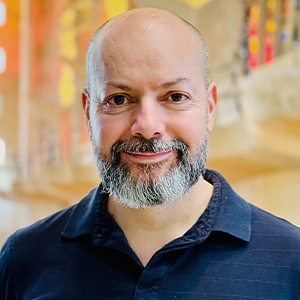
Rod Solar
Founder & Scalable Business Advisor / fCMO
Rod Solar is a co-founder of LiveseySolar and a Scalable Business Advisor for its customers. Rod mentors and coaches eye surgery business CEOs/Founders and their leadership teams to triple their sales, double their profit, and achieve their “ideal exit”.
Related Posts
Meet our Co-Founders
We’re passionate about helping leaders of high-quality, growth-minded practice owners double their practice revenue

Rod Solar
Founder & Scalable Business Advisor
For over 20 years, I’ve helped ophthalmology entrepreneurs scale their private practices. I specialise in doubling revenue within three years by offering a proven framework, hands-on experience, and a team of experts who implement what works. We take the guesswork out of growth and scale, so you can focus on delivering exceptional patient care while maximising the value of your business.
LiveseySolar completely transformed the way we were approaching this… We’ve gone from having just the dream of having a practice to having a practice up and running with people making inquiries and booking for procedures… It’s extremely pleasing. We feel lucky we connected with LiveseySolar.
— Dr Matthew Russell, MBChB, FRANZCO, specialist ophthalmic surgeon and founder of VSON and OKKO
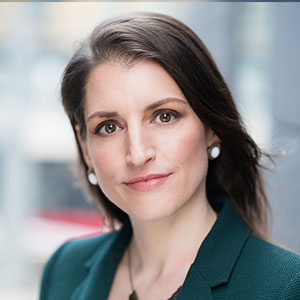
Laura Livesey
Founder & CEO
I’m the co-founder & CEO of LiveseySolar. I’ve developed powerful eye surgery marketing systems that increase patient volumes and profits for doctors, clinics, and hospitals, since 1997.
Rod and Laura know as much about marketing surgery to patients as I know about performing it. They are an expert in the field of laser eye surgery marketing. They know this industry inside out. I believe that they could help many companies in a variety of areas including marketing materials, sales training and marketing support for doctors.
— Prof. Dan Reinstein, MD MA FRSC DABO, founder of the London Vision Clinic, UK


